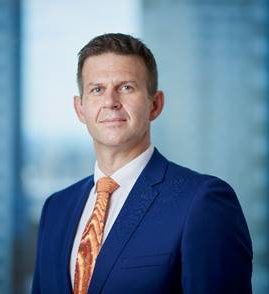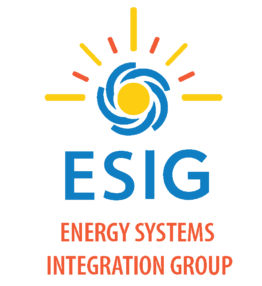
- This event has passed.
G-PST/ESIG Webinar Series: Developing an Engineering Framework to Support Australia’s Energy Transition
February 10, 2021 @ 4:00 pm - 5:00 pm EST

Developing an Engineering Framework to Support Australia’s Energy Transition
Featured Speaker: Christian Schaefer, General Manager, Energy Systems Engineering, Australian Energy Market Operator (AEMO)
 Christian is an electrical engineer with almost 25 years’ experience building, commissioning and operating transmission networks, thermal power stations and renewable generation. He currently leads the Energy Systems Engineering department at AEMO, providing engineering oversight to the transmission planning and design teams of the Australian National Electricity Market Operator, power system incident root cause analysis, energy system integration analysis, and specialist engineering studies and data management.
Christian is an electrical engineer with almost 25 years’ experience building, commissioning and operating transmission networks, thermal power stations and renewable generation. He currently leads the Energy Systems Engineering department at AEMO, providing engineering oversight to the transmission planning and design teams of the Australian National Electricity Market Operator, power system incident root cause analysis, energy system integration analysis, and specialist engineering studies and data management.
Moderator: Charlie Smith, Executive Director, ESIG
Registration Cost: FREE
Q&A Session: We will be using the slido platform for Q&A. Please submit your questions and follow-along during the event at this link.
Webinar Abstract: Australia is a world leader in the rate of adoption of renewable energy. This webinar will describe AEMO’s proposal for an Engineering Framework to provide an integrated roadmap for the National Electricity Market’s energy transition.
The Engineering Framework seeks to provide an up-to-date foundation regarding emerging power system design and operability needs, as a complement to existing work being progressed across industry, recognizing that in managing the energy transition, no one organization has all the answers. Hence, the Engineering Framework is intended to help stakeholders stay informed of the changing technical needs of the power system, the work underway to meet these changing needs, how the different pieces fit together, and how they can engage on topics of interest. This framework is also needed to structure industry discussions around the prioritization of future work, so that the most urgent issues are addressed first.
The Engineering Framework is structured around the three pillars of: system integration, system attributes and system operability, and describes a number focus areas within these.
About G-PST Consortium
The chief executive officers of National Grid Electricity System Operator UK, California Independent System Operator (CAISO), Electric Reliability Council of Texas, Australia Energy Market Operator (AEMO), Ireland’s System Operator (EirGrid), and Denmark’s System Operator (Energinet) are champions in developing the consortium mission and activities. Importantly, these system operators are leading a Research Agenda Group to identify common, cutting-edge research questions that can inform large- scale national research and development investments. Relevant results and lessons from this process will be broadly shared for learning across all countries. The Consortium is also partnering with around 10 emerging economy and developing country system operators from Africa, Asia, Latin America and Eastern Europe who will also guide the G-PST vision and collaborate with the Consortium to advance power system transformation with a focus on technical collaboration, peer learning and exchange, and workforce development to support local PST priorities.
A core team, including the Energy Systems Integration Group (ESIG), Imperial College London, Council of Scientific and Industrial Research (CSIR), Fraunhofer Cluster of Excellence for Integrated Energy Systems, National Renewable Energy Laboratory, Latin American Energy Organization (OLADE), IEEE, Electric Power Research Institute (EPRI), Commonwealth Scientific and Industrial Research Organization (CSIRO), the Danish Technical University (DTU), and ASEAN Center for Energy, is actively developing the consortium and will be engaged in implementation of technical work as well as coordinating specific pillars.
International agencies and multilateral and regional development banks, including World Bank, United States Agency for International Development (USAID), German Agency for International Cooperation (GIZ), International Energy Agency (IEA), Asian Development Bank (ADB), European Bank for Reconstruction and Development (EBRD) and others are serving as key implementing partners to ensure the consortium complements and reinforces existing programs.
For more information on the G-PST visit https://globalpst.org/.

